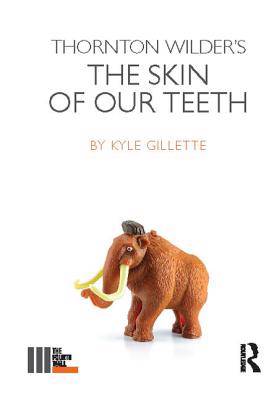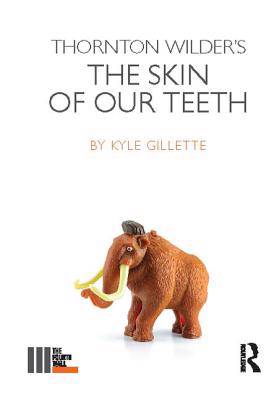
- Retrait gratuit dans votre magasin Club
- 7.000.000 titres dans notre catalogue
- Payer en toute sécurité
- Toujours un magasin près de chez vous
- Retrait gratuit dans votre magasin Club
- 7.000.0000 titres dans notre catalogue
- Payer en toute sécurité
- Toujours un magasin près de chez vous
Description
"Ladies and gentlemen, I'm not going to play this particular scene tonight." - Sabina
Thornton Wilder's The Skin of Our Teeth (1942) telescopes an audacious stretch of western history and mythology into a family drama, showing how the course of human events operates like theatre itself: constantly mutable, vanishing and beginning again.
Kyle Gillette explores Wilder's extraordinary play in three parts. Part I unpacks the play's singular yet deeply interconnected place in theatre history, comparing its metatheatrics to those of Stein, Pirandello and Brecht, and finding its anticipation of American fantasias in the works of Vogel and Kushner. Part II turns to the play's many historic and mythic sources, and examines its concentration of western progress and power into the model of a white, American upper-middle-class nuclear family. Part III takes a longer view, tangling with the play's philosophical stakes.
Gillette magnifies the play's ideas and connections, teasing out historical, theoretical and philosophical questions on behalf of readers, scholars and audience members alike.
Spécifications
Parties prenantes
- Auteur(s) :
- Editeur:
Contenu
- Nombre de pages :
- 96
- Langue:
- Anglais
- Collection :
Caractéristiques
- EAN:
- 9781138418172
- Date de parution :
- 13-07-17
- Format:
- Livre relié
- Format numérique:
- Genaaid
- Dimensions :
- 119 mm x 171 mm
- Poids :
- 339 g

Les avis
Nous publions uniquement les avis qui respectent les conditions requises. Consultez nos conditions pour les avis.






